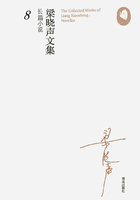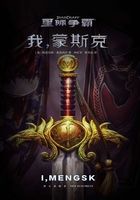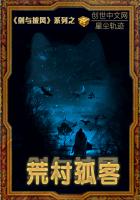He continued, in these words, copied from the minutestaken on the examination: “Burch interrogated the boy inthe usual manner, told him if he purchased him he shouldsend him south. The boy said he had no objection, that infact he would like to go south. Burch paid 650 for him,to my knowledge. I don’t know what name was given him,but think it was not Solomon. Did not know the nameof either of the two men. They were in my tavern two orthree hours, during which time the boy played on theviolin. The bill of sale was signed in my bar-room. It wasa printed blank, filled up by Burch. Before 1838 Burchwas my partner. Our business was buying and sellingslaves. After that time he was a partner of TheophilusFreeman, of New-Orleans. Burch bought here—Freemansold there!”
Shekels, before testifying, had heard my relation of thecircumstances connected with the visit to Washingtonwith Brown and Hamilton, and therefore, it was,undoubtedly, he spoke of “two men,” and of my playingon the violin. Such was his fabrication, utterly untrue,and yet there was found in Washington a man whoendeavored to corroborate him.
Benjamin A. Thorn testified he was at Shekels’ in 1841,and saw a colored boy playing on a fiddle. “Shekels saidhe was for sale. Heard his master tell him he should sellhim. The boy acknowledged to me he was a slave. I wasnot present when the money was paid. Will not swearpositively this is the boy. The master came near sheddingtears: I think the boy did! I have been engaged in thebusiness of taking slaves south, off and on, for twentyyears. When I can’t do that I do something else.”
I was then offered as a witness, but, objection beingmade, the court decided my evidence inadmissible. It wasrejected solely on the ground that I was a colored man—the fact of my being a free citizen of New-York not beingdisputed.
Shekels having testified there was a bill of saleexecuted, Burch was called upon by the prosecution toproduce it, inasmuch as such a paper would corroboratethe testimony of Thorn and Shekels. The prisoner’scounsel saw the necessity of exhibiting it, or giving somereasonable explanation for its non-production. To effectthe latter, Burch himself was offer—as a witness in his own behalf. It was contended by counsel for the people,that such testimony should not be allowed—that it was incontravention of every rule of evidence, and if permittedwould defeat the ends of justice. His testimony, however,was received by the court! He made oath that such a billof sale had been drawn up and signed, but he had lostit, and did not know what had become of it! Thereuponthe magistrate was requested to dispatch a police officerto Burch’s residence, with directions to bring his books,containing his bills of sales for the year 1841. The requestwas granted, and before any measure could be takento prevent it, the officer had obtained possession of thebooks, and brought them into court. The sales for theyear 1841 were found, and carefully examined, but no saleof myself, by any name, was discovered!
Upon this testimony the court held the fact to beestablished, that Burch came innocently and honestly byme, and accordingly he was discharged.
An attempt was then made by Burch and his satellites,to fasten upon me the charge that I had conspired withthe two white men to defraud him—with what success,appears in an extract taken from an article in the New-York Times, published a day or two subsequent to thetrial: “The counsel for the defendant had drawn up,before the defendant was discharged; an affidavit, signedby Burch, and had a warrant out against the colored manfor a conspiracy with the two white men before referredto, to defraud Burch out of six hundred and twenty-five dollars. The warrant was served, and the colored manarrested and brought before officer Goddard. Burchand his witnesses appeared in court, and H. B. Northupappeared as counsel for the colored man, stating he wasready to proceed as counsel on the part of the defendant,and asking no delay whatever. Burch, after consultingprivately a short time with Shekels, stated to themagistrate that he wished him to dismiss the complaint,as he would not proceed farther with it. Defendant’scounsel stated to the magistrate that if the complaint waswithdrawn, it must be without the request or consent ofthe defendant. Burch then asked the magistrate to lethim have the complaint and the warrant, and he tookthem. The counsel for the defendant objected to hisreceiving them, and insisted they should remain as partof the records of the court, and that the court shouldendorse the proceedings which had been had under theprocess. Burch delivered them up, and the court rendereda judgement of discontinuance by the request of theprosecutor, and filed it in his office.”
There may be those who will affect to believe thestatement of the slave-trader—those, in whose mindshis allegations will weigh heavier than mine. I am a poorcolored man—one of a down-trodden and degradedrace, whose humble voice may not be heeded by theoppressor—but knowing the truth, and with a full sense ofmy accountability, I do solemnly declare before men, andbefore God, that any charge or assertion, that I conspired directly or indirectly with any person or persons to sellmyself; that any other account of my visit to Washington,my capture and imprisonment in Williams’ slave pen,than is contained in these pages, is utterly and absolutelyfalse. I never played on the violin in Washington. I neverwas in the Steamboat Hotel, and never saw Thorn orShekels, to my knowledge, in my life, until last January.















